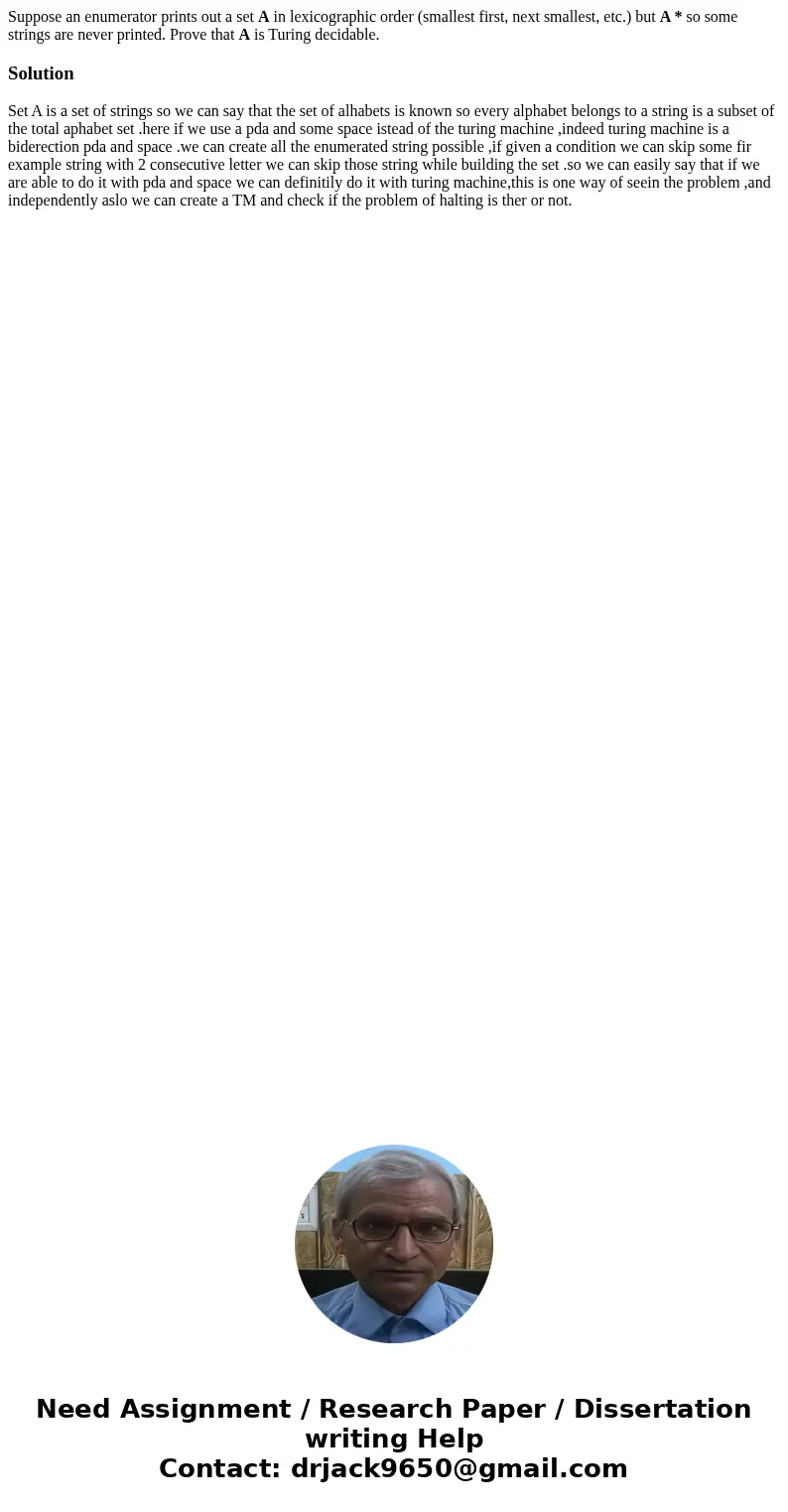Suppose an enumerator prints out a set A in lexicographic or
Suppose an enumerator prints out a set A in lexicographic order (smallest first, next smallest, etc.) but A * so some strings are never printed. Prove that A is Turing decidable.
Solution
Set A is a set of strings so we can say that the set of alhabets is known so every alphabet belongs to a string is a subset of the total aphabet set .here if we use a pda and some space istead of the turing machine ,indeed turing machine is a biderection pda and space .we can create all the enumerated string possible ,if given a condition we can skip some fir example string with 2 consecutive letter we can skip those string while building the set .so we can easily say that if we are able to do it with pda and space we can definitily do it with turing machine,this is one way of seein the problem ,and independently aslo we can create a TM and check if the problem of halting is ther or not.

 Homework Sourse
Homework Sourse